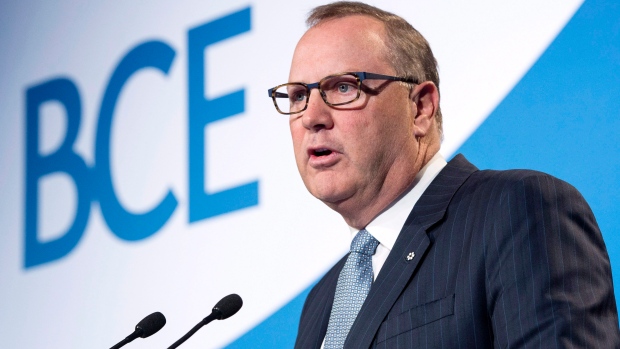May 11, 2016
BCE loses appeal, must give small players fibre Internet access

Ottawa has denied a cabinet appeal launched by BCE Inc. (BCE.TO) over a regulatory ruling that would grant third-party Internet providers access to the company’s newest fibre-optic service.
BCE launched the appeal of part of a Canadian Radio-television and Telecommunications Commission (CRTC) ruling one day after the Oct. 19 federal election that saw the Liberals take power.
The company argued that forcing it to give small Internet service providers (ISPs) the ability to resell its highest-speed broadband service would deter investment as it is still in the process of building that service, known as fibre to the home.
But Navdeep Bains, minister of Innovation, Science and Economic Development, said Wednesday the government has denied BCE’s petition to the governor in council and will allow the CRTC decision to stand.
He said in a statement the government is committed to increasing the availability of high-speed broadband coverage and supporting competition and choice, noting that the wholesale framework “is a proven regulatory tool for enabling retail competition in the Internet service market.”
“The CRTC’s decision to extend wholesale broadband regulation to fibre to the home means the CRTC has updated its regulatory approach to keep pace with changing technology and consumer demand. The decision strikes the right balance between the private sector having incentive to invest and consumers having a competitive choice,” Mr. Bains said.
Telephone companies like BCE and Telus Corp. in the west are making large capital investments to upgrade their legacy copper phone line infrastructure to fibre. But they have warned that heavy-handed regulation could force them to curtail the speed of their investments, particularly in outlying and rural areas, where the population density is lower and it takes longer to get a return on investment.
“We are encouraged by the many recent private sector announcements about investing in fibre in Canadian cities, and we will be consulting Canadians on how our $500-million commitment in Budget 2016 will be used to extend broadband service in rural and remote communities,” Mr. Bains said in his statement.
BCE’s appeal drew interventions from more than 80 individuals, companies, industry groups, municipal leaders and academics by late December. It also prompted debates in municipal councils in Toronto and Ottawa, as some local representatives disagreed with the decisions of the mayors in those cities to independently write to the government in support of BCE’s position.
BNN is a division of Bell Media, which is owned by BCE.






